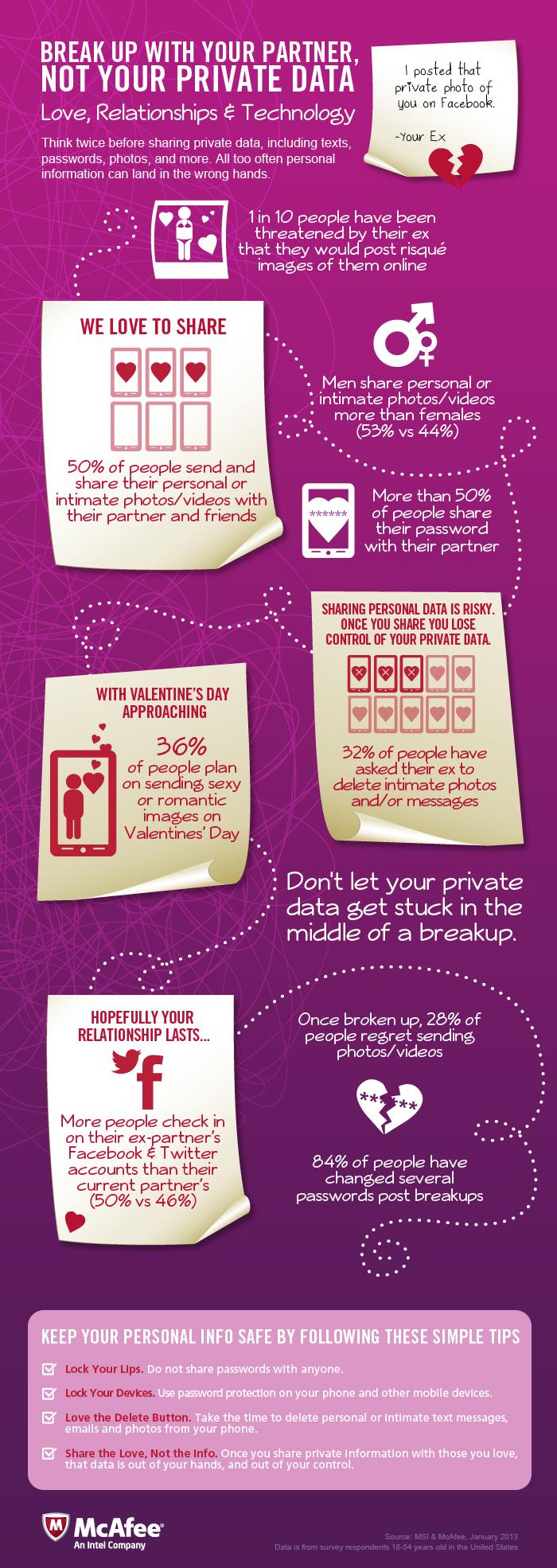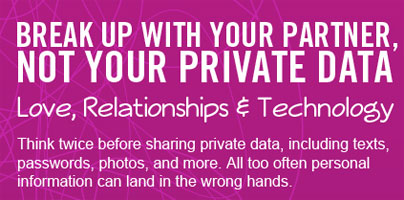When the relationship goes sour, love turns to hate and care turns to revenge. If your ex has access to personal info, like your passwords for example, chances are they will use this to engage in revengeful acts and things are not going to end well.
We all know that passwords should be kept private, that we should not reveal our passwords to others. But when you’re in a relationship and you share everything, you will end up sharing your passwords just like you do everything else. This is especially true if you’re in a committed relationship or if you’re married. Sharing passwords is seen as a sign of trust and is most times expected of you.
According to security company McAfee, you should keep your passwords private, even when dealing with your significant other. According to the statistics, most long term relationships fail – the divorce rate is of about 50%, don’t you know. And, since all is fair in love and war, the chances of your ex engaging in revenge tactics after the breakup are quite high. They may use your passwords or any other private info you shared with them (like risqué photos for example) to take revenge on you.
McAfee’s study “Love, Relationships, and Technology: When Private Data Gets Stuck in the Middle of a Breakup” examined the pitfalls of sharing personal data in relationships and showcased how breakups can lead to exposure of private data. There are many reasons why a former partner would choose to disclose personal information:

The bottom line is that private data should be kept private, not shared with others, not even your partner or loved one. If things go sour, your ex may use that data to get revenge. McAfee advises you to “share the love, not the info - break up with your partner, not your private data.”
“People need to be more informed about the consequences of sharing so much private information with their partners. Sharing passwords with your partner might seem harmless, but it could and often does result in critical personal information falling into the wrong hands and landing on a public platform for all to see,” explained Robert Siciliano, Online Security and Safety Evangelist to McAfee.
We all know that passwords should be kept private, that we should not reveal our passwords to others. But when you’re in a relationship and you share everything, you will end up sharing your passwords just like you do everything else. This is especially true if you’re in a committed relationship or if you’re married. Sharing passwords is seen as a sign of trust and is most times expected of you.
According to security company McAfee, you should keep your passwords private, even when dealing with your significant other. According to the statistics, most long term relationships fail – the divorce rate is of about 50%, don’t you know. And, since all is fair in love and war, the chances of your ex engaging in revenge tactics after the breakup are quite high. They may use your passwords or any other private info you shared with them (like risqué photos for example) to take revenge on you.
McAfee’s study “Love, Relationships, and Technology: When Private Data Gets Stuck in the Middle of a Breakup” examined the pitfalls of sharing personal data in relationships and showcased how breakups can lead to exposure of private data. There are many reasons why a former partner would choose to disclose personal information:
- Lying (45.3%)
- Cheating (40.6%)
- Breaking up with me (26.6%)
- Calling off Wedding (14.1%)
- Posting pictures with someone else (12.5%)
- Other (12.5%)

The bottom line is that private data should be kept private, not shared with others, not even your partner or loved one. If things go sour, your ex may use that data to get revenge. McAfee advises you to “share the love, not the info - break up with your partner, not your private data.”
“People need to be more informed about the consequences of sharing so much private information with their partners. Sharing passwords with your partner might seem harmless, but it could and often does result in critical personal information falling into the wrong hands and landing on a public platform for all to see,” explained Robert Siciliano, Online Security and Safety Evangelist to McAfee.

























